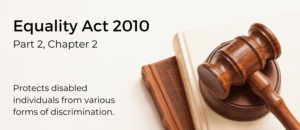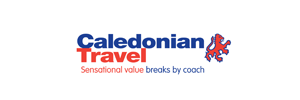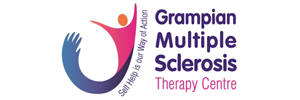
Confused about your Health and Safety responsibilities? We’re here to help. For small or new start-up businesses, you might be…

Outsourced Payroll Simplified Payroll Solutions and Services for UK companies with our low fixed fees, we help keep costs to…

We provide online Health & Safety and HR Compliance courses! These courses now start from £19.99 plus VAT for standard…

Are you managing your GDPR implementation internally but need some support? We offer a GDPR Compliance Pack. This is ideal…

Essential learning solutions for business owners and line managers Our courses are perfect for upskilling individuals, and they can also…
Diversity and inclusivity are no longer just buzzwords but essential components of a successful organisation. A crucial aspect of fostering inclusivity in the workplace is addressing the unique needs of individuals with disabilities. In the UK, HR professionals are increasingly recognising the significance of disability passports in shaping inclusive HR policies and practices.
In this blog post, we will explore the role of disability passports and how they can elevate the inclusivity of your HR strategies.
A disability passport is a personalised document that provides a comprehensive overview of an employee's disability, its impact on their work, and the accommodations and support they may require. It serves as a bridge of communication between employees with disabilities, HR departments, and their colleagues. The key elements of a disability passport include:
Now, let's look into how disability passports can positively impact your organisation's HR policies and practices.

Incorporating disability passports into your HR processes fosters a deeper understanding of employees with disabilities. It allows HR professionals and colleagues to grasp the challenges faced by these individuals and promotes a more empathetic workplace culture. This newfound understanding is the foundation for crafting inclusive HR policies.

Disability passports enable HR teams to provide personalised accommodations that meet the specific needs of each employee. This tailored approach not only enhances productivity but also demonstrates a commitment to inclusivity.

With a disability passport in place, addressing any issues or concerns related to an employee's disability becomes more efficient. HR can refer to the passport for insights and swiftly find solutions, reducing workplace friction and stress.

Ensuring that your HR policies and practices align with legal requirements is vital. Disability passports help organisations comply with the Equality Act 2010, which prohibits discrimination on the grounds of disability.

Publicly supporting disability passports communicates a strong commitment to inclusivity, attracting diverse talent and bolstering your organisation's reputation as an inclusive employer.
Disability passports are emerging as a powerful tool for fostering inclusivity in HR policies and practices. By recognising the unique needs of employees with disabilities, tailoring accommodations, and ensuring legal compliance, organisations can create a workplace where everyone thrives. Embracing disability passports is not just a step towards inclusivity; it's a stride toward a brighter, more diverse, and equitable future for your organisation.
Read more
Equality, Diversity & Inclusion in the workplace
Workplace Insights Podcast
Episode 9: How To Make Sure Disability Passports Work
Listen now on Apple Podcasts or Spotify
First Floor, Office 20,
Balmoral Hub, Building 1,
Balmoral Business Park,
Loriston, AB12 3JG

Copyright © 2022 hrhubplus.com. Registered Office: First Floor, Office 20, Balmoral Hub, Building 1 , Balmoral Business Park, Loriston, Aberdeen, Scotland, AB12 3JG. Registered in Scotland SC584928.
| Cookie | Duration | Description |
|---|---|---|
| cookielawinfo-checkbox-analytics | 11 months | This cookie is set by GDPR Cookie Consent plugin. The cookie is used to store the user consent for the cookies in the category "Analytics". |
| cookielawinfo-checkbox-functional | 11 months | The cookie is set by GDPR cookie consent to record the user consent for the cookies in the category "Functional". |
| cookielawinfo-checkbox-necessary | 11 months | This cookie is set by GDPR Cookie Consent plugin. The cookies is used to store the user consent for the cookies in the category "Necessary". |
| cookielawinfo-checkbox-others | 11 months | This cookie is set by GDPR Cookie Consent plugin. The cookie is used to store the user consent for the cookies in the category "Other. |
| cookielawinfo-checkbox-performance | 11 months | This cookie is set by GDPR Cookie Consent plugin. The cookie is used to store the user consent for the cookies in the category "Performance". |
| viewed_cookie_policy | 11 months | The cookie is set by the GDPR Cookie Consent plugin and is used to store whether or not user has consented to the use of cookies. It does not store any personal data. |












